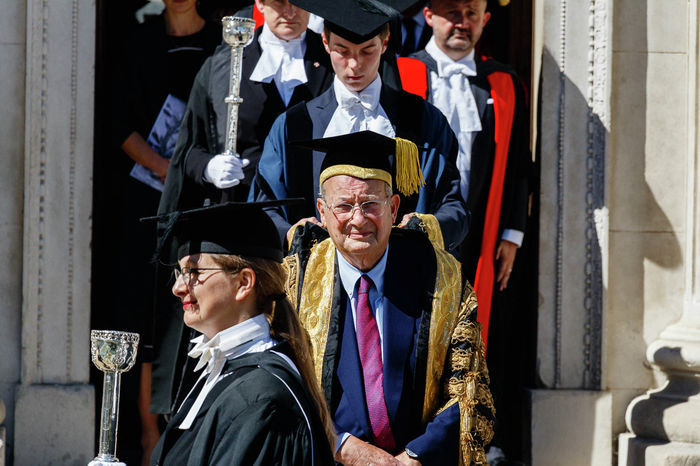Chancellor life tenure scrapped to encourage diversity
The University is introducing a 10-year term limit for its Chancellor ahead of next year’s election

The Regent House, the governing body of the University, has voted to limit the term of the chancellor to ten years in order to “help to encourage equality, diversity and inclusion,” despite concerns from some members that the change could be “disruptive”.
Last month, the Regent House voted in favour of a proposal to revise the terms of the chancellor and High Steward so that those appointed to the roles serve a maximum of 10 years instead of life.
This means Cambridge University will re-elect its chancellor, who holds a largely ceremonial position, at least once a decade.
In a July report recommending its introduction, the Council said that the term limit will advance “the aim of securing a more diverse field of high-calibre candidates” and that its length of ten years will “still encourage long-term commitment to the office”.
Supporting the report, one group of Regent House members suggested that the faster turnover of chancellors will help to encourage equality, diversity and inclusion”.
Those elected to the office are “expected to represent and advance the interests of the University,” they said. The group called for fellow members to back the Council’s recommendation, suggesting it would make the position of chancellor accessible to a wider range of candidates, bringing a wider range of experiences to the role.
Members who voted against the introduction of the new term limit have concerns about the change. One group rejected the Council’s claim that fixed terms will attract more diverse and highly qualified candidates. They argued that “in an increasingly politicised higher education sector, we should be cautious of more frequent and possibly more acrimonious elections” as these could “put off as many potential candidates as they attract”.
The change follows the current chancellor, Lord Sainsbury of Turville’s, announcement in February that he would be stepping down at the end of the academic year. The University Council has taken his resignation as an opportunity to reform the role.
The University of Oxford has also introduced a ten-year term limit for its chancellor ahead of its own election this year. Of the 38 candidates who applied to the position, several are high-profile politicians, like William Hague and Peter Mandelson. They have been accused of politicising the race.
Members of the Regent House who opposed the fixed term worry the upcoming election in Cambridge could see the same disruption.
The University of Cambridge said “Regent House members voted decisively in favour of this proposal. We look forward to the election of a new Chancellor next year and welcoming them to Cambridge.”
 Comment / Cambridge’s tourism risks commodifying students18 April 2025
Comment / Cambridge’s tourism risks commodifying students18 April 2025 News / Cambridge student numbers fall amid nationwide decline14 April 2025
News / Cambridge student numbers fall amid nationwide decline14 April 2025 News / Greenwich House occupiers miss deadline to respond to University legal action15 April 2025
News / Greenwich House occupiers miss deadline to respond to University legal action15 April 2025 Comment / The Cambridge workload prioritises quantity over quality 16 April 2025
Comment / The Cambridge workload prioritises quantity over quality 16 April 2025 Sport / Cambridge celebrate clean sweep at Boat Race 202514 April 2025
Sport / Cambridge celebrate clean sweep at Boat Race 202514 April 2025





